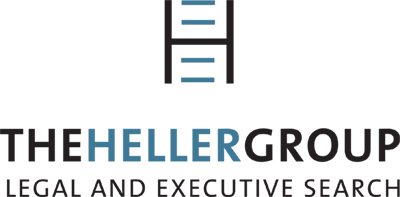Do you ever find yourself running out of time to check for job postings on LinkedIn at the end of a long day? Or promising to send your resume to a recruiter only to realize you are still working on it two weeks later? You are not alone! Many candidates find it challenging to balance an active job search while also managing a busy practice.
Job searches can be all consuming – both because of the time investment they require and the cognitive load they demand. As with any significant life decision, thinking about a job change will require a lot of your attention as you work on applications, conduct research on potential employers, and weigh the pros and cons of a role. Setting out a plan in advance of making active applications will help you manage the process effectively, making it a less stressful time for yourself as well as ensuring you make a positive impression with potential employers throughout the process.
Here are some tips I frequently give to candidates on how to effectively manage their job search:
- Don’t wait. There will never be the perfect time to engage in a search and waiting for that elusive lull in your practice may mean you miss out on opportunities and have less control over the process.
- Block time. Like any other important activity (the gym, work deadlines) it is important to set aside time in your calendar to focus on your search. If you promise to send an updated resume or give thoughts on a role by a certain time, make sure you stick to that deadline just like any other.
- Stay organized. Take time in advance to plan your search – think about your goals, the roles you want to target and who in your network you want to reach out to. Keep track of where you have submitted your resume, responses you have received, and any deadlines you commit to. This will help limit time spent sorting through emails and trying to retrace your activities later on.
- Update your contacts. Confirm that your email and phone number listed on your resume is current and correct and make sure you are checking those regularly. Any lag in communications will not be viewed positively by a potential employer. Also, consider your voicemail greeting (is it clear, is it professional?) as you are likely using a personal number.
- Communicate absences. It is to be expected that, over the course of your job search, there will be various reasons why you can’t respond or be available in a timely fashion. Vacations, court hearings, and transaction closings are all part of a lawyer’s life. This isn’t a problem as long as you communicate these absences in advance so that interview processes can be managed around these events.
- Use a recruiter! As we discussed in a previous blog, working with a recruiter can take a lot of the pressure off you during a job search. They will deal with a lot of the administrative matters (scheduling, follow up) and will keep the momentum of your search going.
Finally, when you make the decision to embark on your job search, you should make sure the following paperwork is in order so that you can respond promptly to any requests that come for additional information:
- Resume and transaction summary – these should always reflect your current experience and the correct balance of your practice.
- Transcripts – firms commonly ask for these for any associate level roles and you may need to order a copy, if you don’t have one on hand, which can take some time.
- Writing sample – it is good to have a piece on hand in the event one is requested. Make sure you select a piece you are able to share and that any redactions are done to maintain confidentiality.
- Reference Letters – if you are at a junior level, and in particular if you have been let go from a position, it is a good idea to have these organized in advance or at least have the names of referees in mind so that they are ready to be contacted.
Remember, you have embarked on a job search for a reason and it is important to stick to your plan and prioritize your search in the face of competing demands. These early interactions (your application, scheduling, and follow up from interviews) will form part of an employer’s first impressions of you and early planning will ensure these interactions are positive. By planning ahead you will convey your commitment to the process and ensure you do not give the false impression that you are just fishing for leads due to a lack of organization.
Jennifer is a Recruitment Consultant with The Heller Group. She is actively involved in the recruitment and placement of lawyers into law firms and corporations. In her spare time, Jennifer enjoys hiking with her two dachshunds.
Image via shutterstock.com


